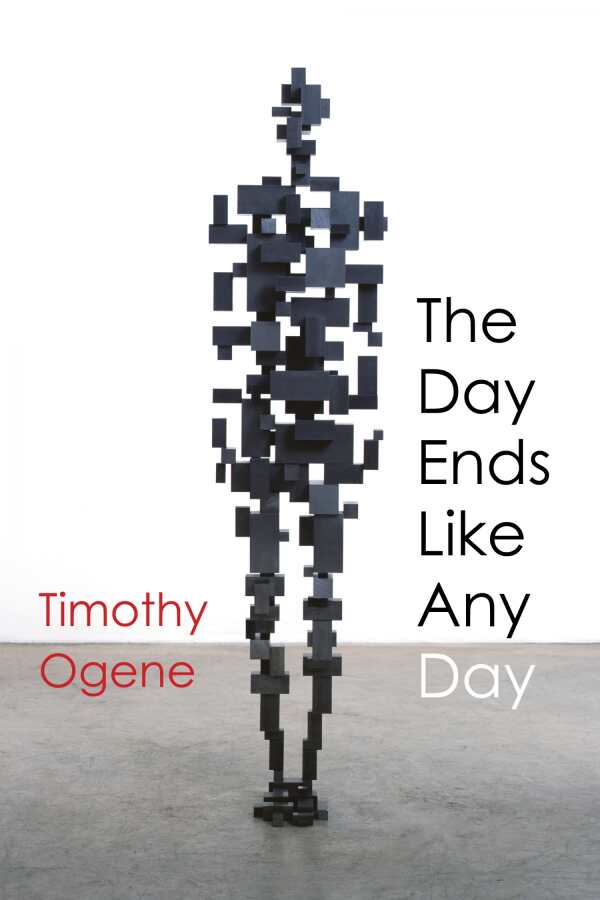The Day Ends Like Any Day
The Day Ends Like Any Day illustrates the ways in which human beings carry their pasts with them no matter where they go.
Timothy Ogene’s lyrical, coming-of-age novel The Day Ends Like Any Day follows Sam, a young Nigerian man, as he struggles to live within, then beyond, the slum that he was born into, until he gradually realizes that he can’t grow past what’s left inside of him.
Born in the Blocks as one of many siblings, Sam first comes to understand the world through his senses—navigating its alphabetical lanes, its larger-than-life figures, its substances, its shadows, and its smells. Sam roams freely, ending up in places he’s not expected to be.
Foremost among these is Pa Suku’s shanty, with its books, music, and radio. Though Pa Suku is sidelined in the larger community, he becomes central to Sam. This influence ensures Sam’s orbit will spin him farther and farther away from the Blocks as he figures out how to acknowledge the man he’s destined to become—though unpacking the poverty, class, gender roles, sexuality, and brutality that Sam is exposed to before he is ten proves to be a lifetime’s work.
Sam’s life is evoked with arresting verisimilitude. He’s a witness more than he’s an actor. He sees more than he understands. He knows more than he’ll let himself acknowledge. He’s centered in his own story, but he’s not central. Despite all of this—or perhaps because of it—Sam lives forward.
Every moment is a present that leads to the next. Yet despite his best efforts, Sam circles the slum like water around a drain, recalling, “When we finally left to face the world, to universities and big cities, we would fight to forget those peculiar odours, but they would linger, reminding us that the past was as present as our flesh.”
Timothy Ogene’s The Day Ends Like Any Day illustrates the ways in which human beings carry their pasts with them no matter where they go. It is a powerful novel that demands reconciliation, from the reader and its protagonist alike.
Reviewed by
Letitia Montgomery-Rodgers
Disclosure: This article is not an endorsement, but a review. The publisher of this book provided free copies of the book to have their book reviewed by a professional reviewer. No fee was paid by the publisher for this review. Foreword Reviews only recommends books that we love. Foreword Magazine, Inc. is disclosing this in accordance with the Federal Trade Commission’s 16 CFR, Part 255.

